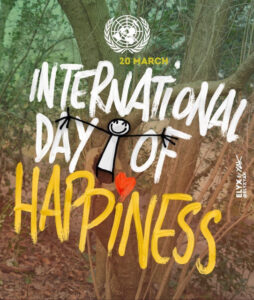Covid Suffering
Happiness…even now.
March 20, 2021💛 ❤️ 💛 ❤️ 🥰 ❤️ 💛 ❤️ 💛
And then, listen to Krista Tippett’s conversation with clinical psychologist Christine Runyan.
Runyan is a professor in the Department of Family Medicine and Community Health at the University of Massachusetts Medical School. She is a certified mindfulness teacher. She co-founded and co-leads Tend Health, a clinical consulting practice focused on the mental well-being of health care practitioners.
The light at the end of the COVID tunnel is tenuously appearing — yet many of us feel as exhausted as at any time in the past year. Memory problems; short fuses; fractured productivity; sudden drops into despair. We’re at once excited and unnerved by the prospect of life opening up again. Clinical psychologist Christine Runyan explains the physiological effects of a year of pandemic and social isolation — what’s happened at the level of stress response and nervous system, the literal mind-body connection. And she offers simple strategies to regain our fullest capacities for the world ahead.
This conversation is so practically helpful for understanding what’s been happening at a creaturely level inside us for over a year, and for gaining some simple strategies to bring our conscious selves back online, mustering the fullest capacities innate within us for meeting the world ahead.
Viktor Frankl, and he says, “Between stimulus and response, there is a space. And in that space lies our power to choose. And in our choice lies our growth and our freedom.”
In regard to the work Runyan does with health care workers and Tend Health:
“No amount of sophisticated technology can do what health professionals have done these past few months — offered care with uncertain evidence, sat with the dying, comforted family members from afar, held one another in fear and grief, celebrated unexpected recoveries, and simply showed up. We have asked and expected clinicians to show up in ways they were never trained to do. No one has been trained in how to emotionally manage months of mass casualties. No one has been trained on how to keep showing up despite feeling feckless on the job. No one has been trained how to keep regular life afloat at home and anxiety at bay, while working day after day with a little known biohazard.”
We are pretty conditioned to turn away from discomfort and suffering in our society. We are not very good at allowing for grief, which is always on its own timeline, and it’s unpredictable in its own right. And this is a tough one, because it’s not a pinpoint experience. I don’t know what it looks like to have a day of remembering or some sort of ritual around — because we’re still in it, is the other thing. We’re trying to grieve a trauma that is still ongoing. And I don’t have the answer to how to do that, other than one breath at a time — because it’s still here.
